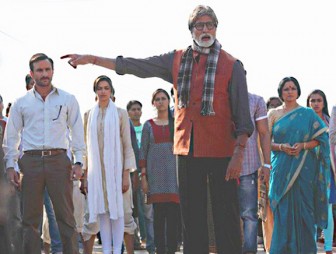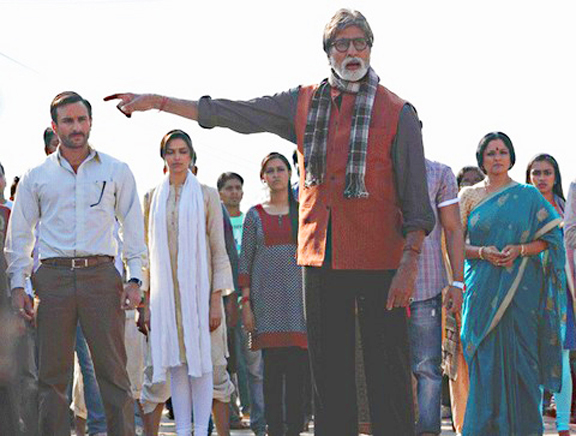NEW DELHI, (Reuters Life!) – An Indian film over caste discrimination against “untouchables” has been mired in controversy with protests from caste groups forcing the producers to cut parts of the film, highlighting deep-seated social tensions in the rising economic power.
 “Aarakshan”, which means reservation, explores quotas for lower castes in the government and educational institutions, affirmative action which upper caste, often wealthier Indians see as squeezing them out of jobs and college places.
“Aarakshan”, which means reservation, explores quotas for lower castes in the government and educational institutions, affirmative action which upper caste, often wealthier Indians see as squeezing them out of jobs and college places.
The film, starring Bollywood super stars Amitabh Bachchan and Saif Ali Khan, centres around an idealistic teacher who believes quotas are meant to provide opportunities to the weaker sections of society to help them succeed on their own merits.
But many caste groups complained the film portrayed them in a negative light because of certain scenes in which characters say untouchables, known as “Dalits”, are dirty and fit to polish the shoes of their social betters.
Behind India’s modernization and growing cosmopolitanism, driven by accelerating economic growth, caste is a constant presence, playing roles as diverse as determining governments to denying access to common facilities like water and schools.
“While the overall theme of the film is not objectionable, it is loaded with anti-Dalit and anti-reservation dialogues,” P.L. Punia, the chairman of the national commission for scheduled castes and scheduled tribes told local media.
“Aarakshan has failed. It is likely to create communal tension,” he added.
After threats of protests in Mumbai and the ban of the film in two states, Punjab and Uttar Pradesh, the director Prakash Jha agreed to alter the film for its release on August 12.
Police have arrested protesters in the past few days, according to local newspapers, while both of the film’s main actors have beefed up their personal security.
“Reservation is a sensitive issue but we have kept that in mind. Political reasons could be behind the ban on the film. I will make appropriate cuts in the film as per suggestions,” Jha, who is known for his controversial films on themes such as corruption and dynastic politics, told reporters yesterday.
Nearly 65 years of democracy since independence in 1947 have eased some of the worst forms of caste discrimination in India, outlawed by the constitution, but even educated, well-off Indian families still draw the line at inter-caste marriages.
Caste adds force to much of the politics in India, with a rash of political parties championing the cause of particular groups turning king-makers in a time of coalition governments. About 160 million Indians, or 16 percent of the world’s second biggest population, are Dalits, according to a 2001 census.

